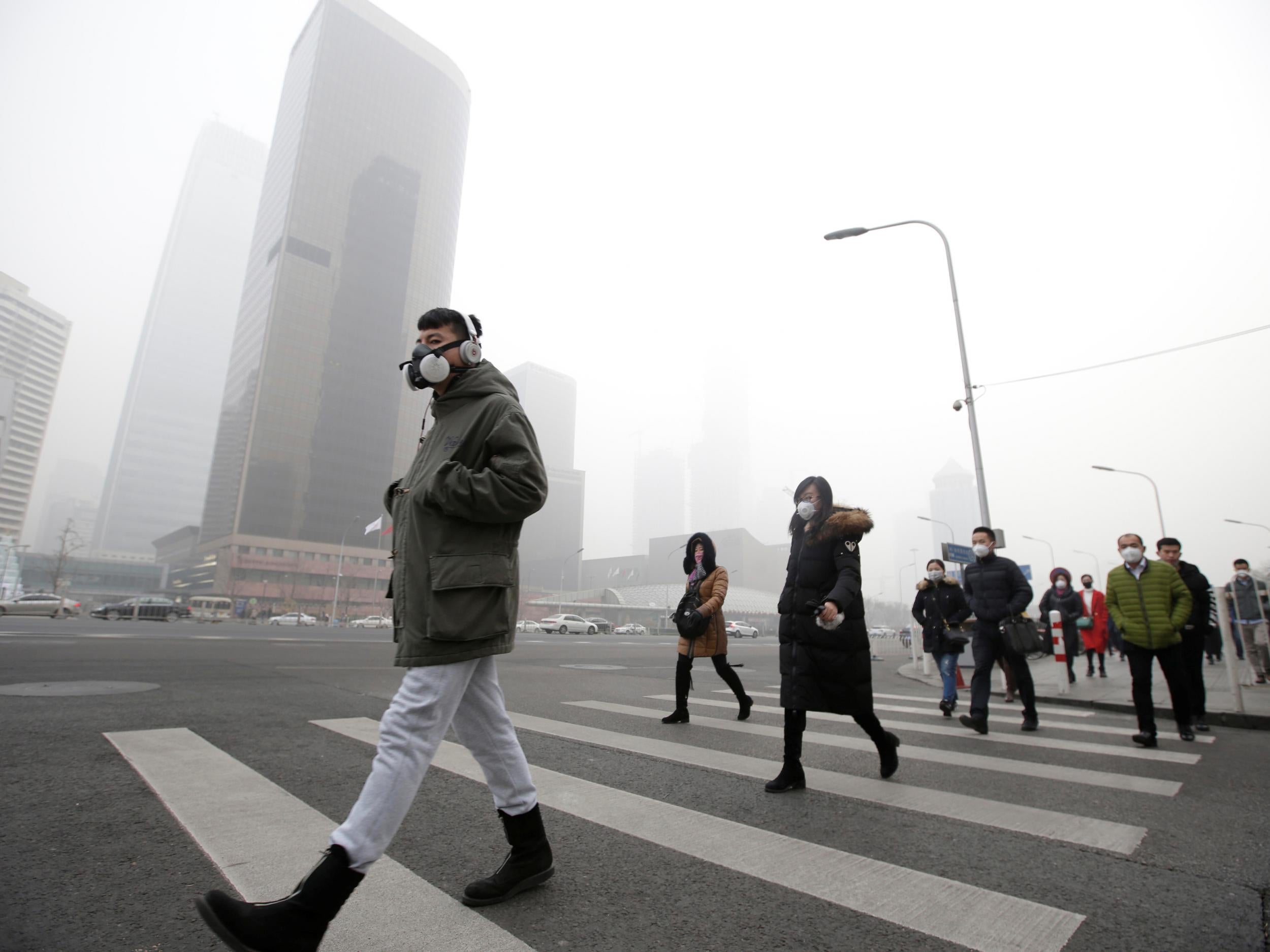European smog could be 27 times more toxic than air pollution in China
Much of the air pollution in China comes from natural sources, rather than the burning of fossil fuels that makes up most of the problem in the West

Smog in Europe and North America could be more than 25 times more lethal than the average air pollution found in Chinese cities, a new study suggests.
In the largest ever study of its kind in the developing world, researchers tested the effects of air pollution on the health of people in 272 cities in China.
They found average annual exposure to fine particles, known as PM2.5, in those cities was more than five times higher than the level recommended by the World Health Organisation (WHO), according to a paper in the American Journal of Respiratory and Critical Care Medicine.

However they also discovered that it was much less likely to increase the death rate than PM2.5 in Europe and North America.
The researchers, led by Dr Maigeng Zhou, of the Chinese Centre for Disease Control and Prevention, suggested this was because China is affected by large amounts of natural dust blown by the wind from arid areas, while most pollution in the West comes from industry.
They found that for every increase of 10 micrograms of air pollution in a cubic metre of air, the mortality rate increased by 0.22 per cent, discounting deaths from accidents.
Professor Frank Kelly, an expert in environmental health at King’s College London, who was not involved in the study but has studied air pollution in China, told The Independent: “Those relative risks are considerably less than those seen in Europe and the US.
“For premature mortality [in Europe] we are working on a six per cent increase per 10 micrograms.”
That suggests air pollution in Europe is about 27 times more toxic than average air pollution in China.
However Professor Kelly said cities like Beijing, Shanghai and Hong Kong were likely to suffer from Western-style air pollution.
“The natural dust component there is not of the magnitude that it would dwarf the coal, biomass and fossil fuel signals,” he said.
“That [the lower mortality rate] may be true in certain cities whose pollution is not dominated by local power generation or major traffic congestion.”
Natural dust particles can cause physical damage to the lungs and trigger an asthma attack. Particles of carbon produced when fossil fuels are burned can lead to similar problems but they are also coated with toxic heavy metals, chemicals and volatile organic compounds.
These are able to pass from the lungs into the blood stream where it is thought they cause further damage to the body.
Areeba Hamid, an air pollution campaigner with environmental group Greenpeace, said: “Toxic air causes havoc to people’s health wherever in the world they live.
“We now know fumes from diesel vehicles are a lot more toxic than car companies claimed and this is a big cause of air pollution in Europe and North America.
“These companies have a lot to answer for, but so far they’ve managed to avoid any real accountability.”
The study of cities in China found the average annual expose to PM2.5 was 56 micrograms per cubic metre, compared to the WHO guideline limit for safe air quality of 10 micrograms.

People who were older than 75, had less education or who lived in hotter places were more likely to die.
It is thought people in warmer cities were more likely to spend time outside or leave their windows open, thereby breathing more polluted air, the researchers said.
They also speculated that less well educated people might have poorer access to health care or experience poorer environmental health conditions.
Join our commenting forum
Join thought-provoking conversations, follow other Independent readers and see their replies
Comments
Bookmark popover
Removed from bookmarks